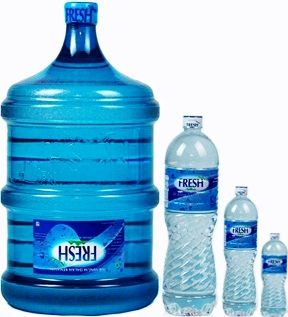Also, while municipal water systems must test for harmful microbiological content in water several times a day, bottled water companies are required to test for these microbes only once a week.
Similarly, public water systems are required to test for chemical water contaminants four times as often as bottled water companies. In addition, loopholes in the FDA’s testing policy do not require the same standards for water that is bottled and sold in the same state, meaning that a significant number of bottles have undergone almost no regulation or testing.
Even under the more lax standards of the FDA, bottled water companies do not always comply with standardized contaminant levels.
Alarmingly, the 1999 NRDC study found that 18 of the 103 bottled water brands tested contained, in at least one sample, “more bacteria than allowed under microbiological-purity guidelines.”
Also, about one fifth of the brands tested positive for the presence of synthetic chemicals, such as industrial chemicals and chemicals used in manufacturing plastic like phthalate, a harmful chemical that leaches into bottled water from its plastic container. In addition, bottled water companies are not required to test for cryptosporidium, the chlorine-resistant protozoan that infected more than 400,000 Milwaukee residents in 1993. Bottled water companies, because they are not under the same accountability standards as municipal water systems, may provide a significantly lower quality of water than the water one typically receives from the tap.


.jpg)


.jpg)
.jpg)
.jpg)
.jpg)
.jpg)
.jpg)
.jpg)

